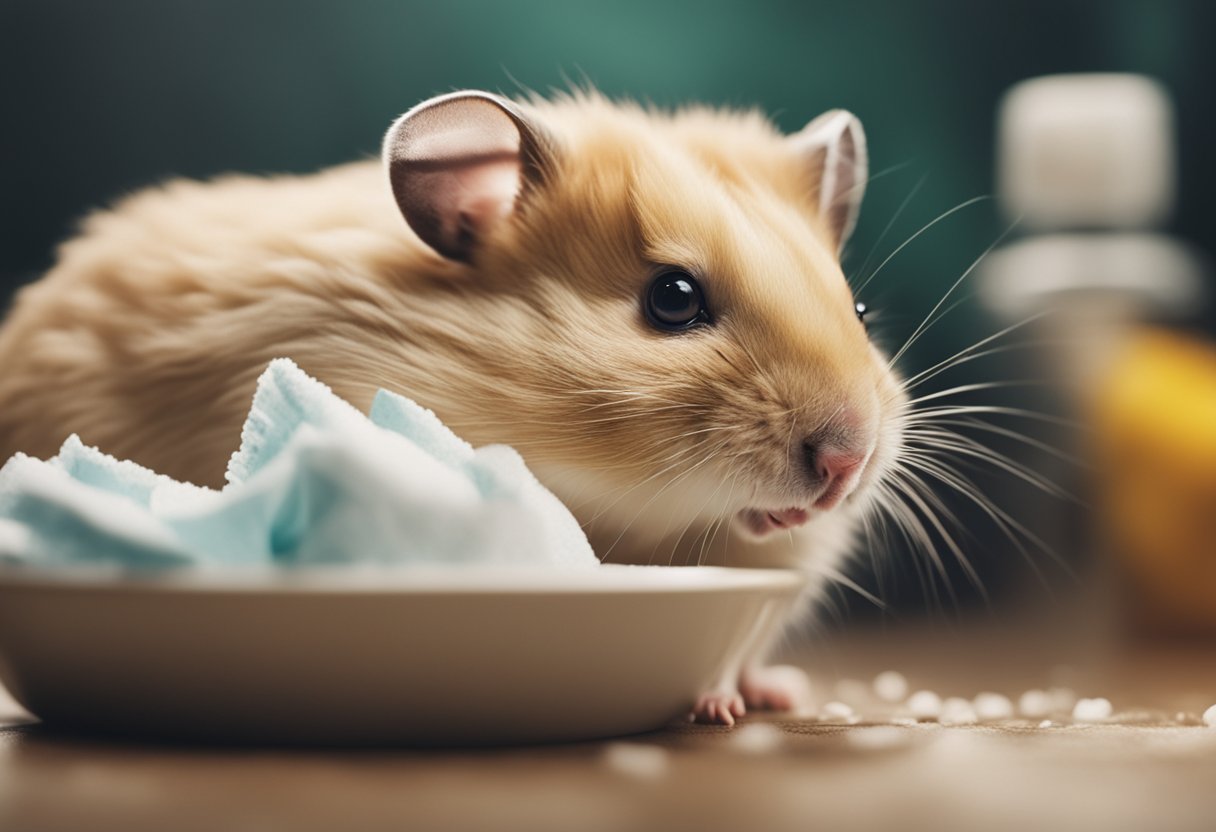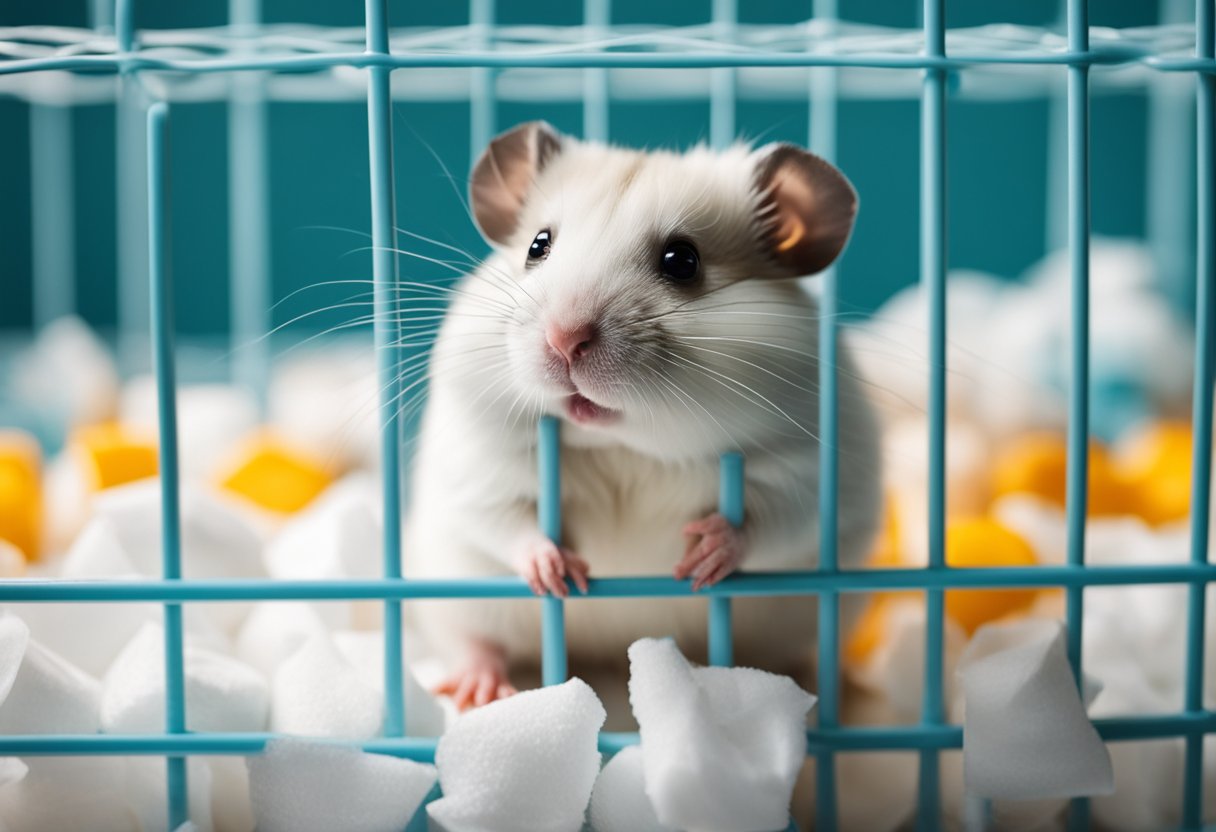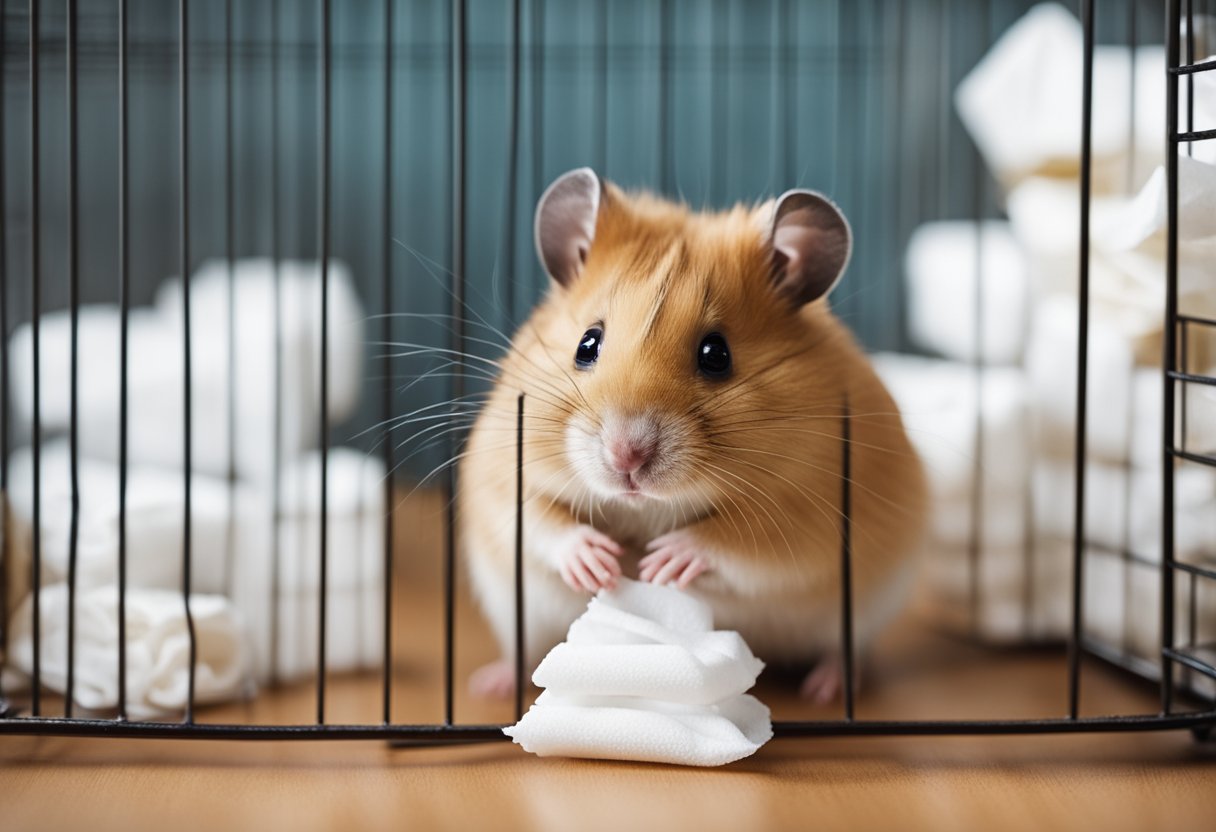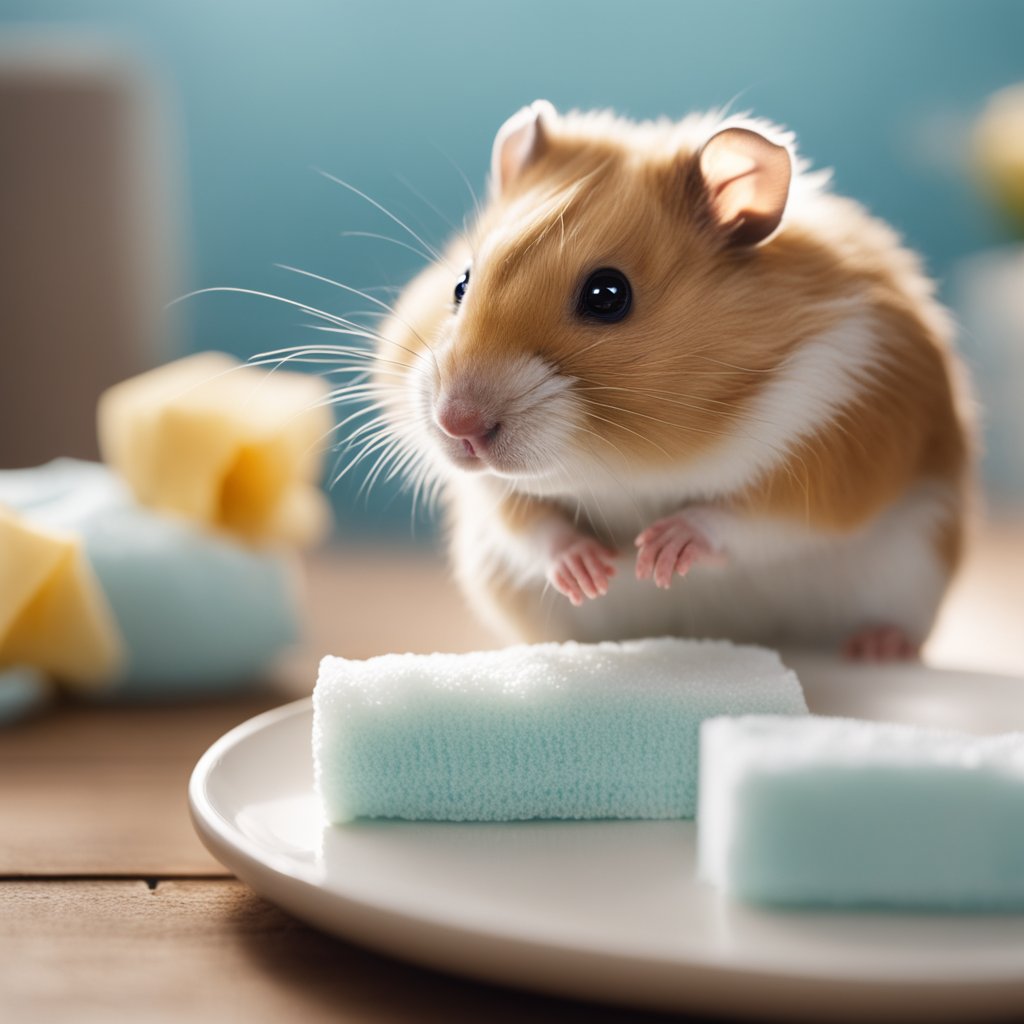Can I Safely Wipe My Hamster with Baby Wipes?
Can I wipe my hamster with baby wipes? As a hamster owner, you want to keep your furry friend clean and healthy. Grooming your hamster regularly is essential to their well-being. But when it comes to cleaning your hamster, you may wonder if baby wipes are safe to use.

Hamster Grooming Basics Before we delve into whether baby wipes are safe for hamsters, let’s first review some hamster grooming basics. Hamsters are clean animals and will groom themselves regularly. However, they may need some help from their owners to keep their fur clean and healthy. You can groom your hamster by using a soft-bristled brush to remove any loose fur or debris. You can also use a damp cloth or paper towel to spot clean any areas that need extra attention.
Using Baby Wipes on Hamsters So, can you use baby wipes on your hamster? The answer is yes, but with caution. According to PetShun, the fragrances, moisturizers, and preservatives in baby wipes can be harsh and irritating to a hamster’s skin. Some baby wipes also contain alcohol, which can dry out and further irritate their skin. If you do choose to use baby wipes on your hamster, make sure to use unscented, alcohol-free wipes and avoid their eyes and nose.
Key Takeaways
- Hamsters are clean animals and will groom themselves regularly, but they may need some help from their owners to keep their fur clean and healthy.
- Baby wipes can be used on hamsters, but you should use unscented, alcohol-free wipes and avoid their eyes and nose.
- It is recommended to use a damp cloth or paper towel for spot cleaning instead of using baby wipes on your hamster.
Hamster Grooming Basics

Understanding Hamster Hygiene
As a hamster owner, it is important to understand the basics of hamster hygiene to keep your little friend healthy and happy. Hamsters are naturally clean animals and groom themselves regularly. However, they still need some assistance from you to maintain their hygiene.
Hamsters have sensitive skin and their fur can get dirty or matted, which can lead to skin irritation or infection. To prevent this, you should groom your hamster regularly by brushing their fur with a soft brush or comb. You can also give them a bath once every few months, but be sure to use a hamster-safe shampoo and avoid getting water in their ears or eyes.
Safe Cleaning Practices
When it comes to cleaning your hamster’s cage or accessories, it is important to use safe cleaning practices. Avoid using harsh chemicals or cleaners that can be harmful to your hamster’s health. Instead, use a mild soap or hamster-safe disinfectant and rinse thoroughly with water.
Many hamster owners wonder if they can use baby wipes to clean their hamsters. While some baby wipes may be safe for hamsters, others can contain fragrances, moisturizers, or preservatives that can be harsh and irritating to their skin. Therefore, it is best to use a damp cloth or paper towel for spot cleaning.
It is also important to clean your hamster’s cage regularly to prevent the buildup of bacteria and odors. Remove any uneaten food, soiled bedding, or waste daily and replace with fresh bedding. Deep clean the cage once a week by removing all accessories and washing them with soap and water.
Using Baby Wipes on Hamsters

If you’re wondering whether you can use baby wipes on your hamster, the answer is yes, but with caution. Baby wipes can be used to clean your hamster’s fur, but it is essential to know the potential risks and appropriate alternatives.
Potential Risks
While baby wipes are generally safe for hamsters, some brands may contain chemicals that can irritate their skin. It is essential to check the ingredients list on the baby wipes before using them on your furry friend. Some brands contain ingredients that can be harmful to hamsters, such as alcohol or fragrances. Therefore, it is advisable to use wipes that are unscented and free of chemicals.
Another risk of using baby wipes on hamsters is that they may accidentally ingest some of the wipes while grooming themselves. Ingesting baby wipes can cause digestive problems, such as intestinal blockages or diarrhea, which can be fatal for hamsters.
Appropriate Alternatives
If you want to clean your hamster’s fur, there are appropriate alternatives to baby wipes that are safer for your furry friend. Here are some alternatives you can use:
- Damp cloth: You can use a damp cloth to wipe your hamster’s fur gently. Ensure the cloth is damp and not soaking wet to prevent the hamster from getting cold.
- Waterless shampoo: Waterless shampoo is an excellent alternative to baby wipes. It is safe for hamsters and can be used to clean their fur without the risk of ingestion.
- Hamster shampoo: If your hamster is particularly dirty, you can use a hamster shampoo to clean their fur. Ensure the shampoo is specifically designed for hamsters and free of chemicals that can harm them.
In conclusion, while baby wipes can be used on hamsters, it is essential to use them with caution. Always check the ingredients list before using them, and ensure they are unscented and free of chemicals. If you’re unsure, it’s best to use appropriate alternatives such as damp cloth, waterless shampoo, or hamster shampoo.
Resources

When it comes to taking care of your hamster, it’s important to have reliable resources to turn to. Here are a few resources you can consult for more information on the topic of using baby wipes on your hamster:
- HamsterAnswers.com: This website provides information on the use of baby wipes on hamsters, including the importance of checking the ingredients list and the potential environmental impact of using baby wipes.
- PetShun.com: This website offers an in-depth look at the potential risks of using baby wipes on your hamster, including the potential for skin irritation and the presence of harmful chemicals in some baby wipes.
- CaringTinyPets.com: This website provides a comprehensive guide to using baby wipes on your hamster, including tips for choosing the right brand and checking the ingredients list.
Remember, it’s important to do your research and consult multiple sources before making any decisions about your hamster’s care. In addition to these resources, you can also consult with your veterinarian or a trusted hamster expert for more personalized advice.
Conclusion

In conclusion, using baby wipes on your hamster is generally safe as long as you use the right type of wipes. Opt for fragrance-free, alcohol-free, and hypoallergenic wipes that are known to be pet-friendly. It’s important to avoid wipes that contain potentially harmful chemicals that could irritate your hamster’s skin or respiratory system.
When using baby wipes on your hamster, make sure to avoid their eyes, ears, and mouth. Gently wipe their fur, paws, and tail, being careful not to apply too much pressure. If your hamster gets really dirty or sticky, you can try using unscented, baby-safe wet wipes specifically designed for small animals.
It’s important to note that while baby wipes can be used to clean a hamster’s cage, they may pose certain health risks to your furry friend. The fragrance, chemicals, and residue from the wipes can irritate the hamster’s respiratory system and potentially be toxic if ingested. Therefore, it’s recommended to use other methods for cleaning your hamster’s cage, such as spot cleaning with a damp cloth or using a pet-safe cleaning solution.
Overall, using baby wipes on your hamster can be a convenient and effective way to keep them clean and comfortable, but it’s important to use them responsibly and with caution.
Frequently Asked Questions

What is the safest way to clean my hamster?
Hamsters are clean animals and do not require frequent bathing. In fact, bathing a hamster too often can strip their skin of natural oils and cause dryness and irritation. The safest way to clean a hamster is by spot cleaning only the areas that need attention. Use a damp cloth or paper towel to gently wipe the area with lukewarm water. Avoid using any soap or shampoo as these products can be harmful to your hamster’s skin.
How can I maintain my hamster’s cage hygiene?
Maintaining a clean and hygienic cage is essential to your hamster’s health and well-being. To keep the cage clean, remove any soiled bedding, food, and water on a daily basis. Once a week, do a deep clean of the entire cage by removing all the bedding, toys, and accessories. Wash the cage with a mild soap and warm water, rinse thoroughly, and allow it to dry completely before adding new bedding.
Are any human hygiene products safe for hamsters?
It is not recommended to use any human hygiene products on your hamster. Products such as wet wipes, baby wipes, and hand sanitizers can contain chemicals that are harmful to your hamster. If you need to clean your hamster, use a damp cloth or paper towel with lukewarm water only.
What cleaning agents are recommended for hamster habitats?
When cleaning your hamster’s habitat, it is recommended to use a mild soap and warm water. Avoid using any harsh chemicals or cleaning agents as these can be harmful to your hamster. Make sure to rinse the habitat thoroughly and allow it to dry completely before adding new bedding.
How often should a hamster be cleaned?
Hamsters do not require frequent cleaning as they are clean animals that groom themselves regularly. Spot cleaning should be done as needed, while deep cleaning of the cage should be done once a week.
What are the risks of using wet wipes on small pets?
Using wet wipes on small pets can be harmful as they can contain chemicals and fragrances that are toxic to your pet. Wet wipes can also leave behind residue that can irritate your pet’s skin. It is best to avoid using wet wipes and instead use a damp cloth or paper towel with lukewarm water to clean your pet.
